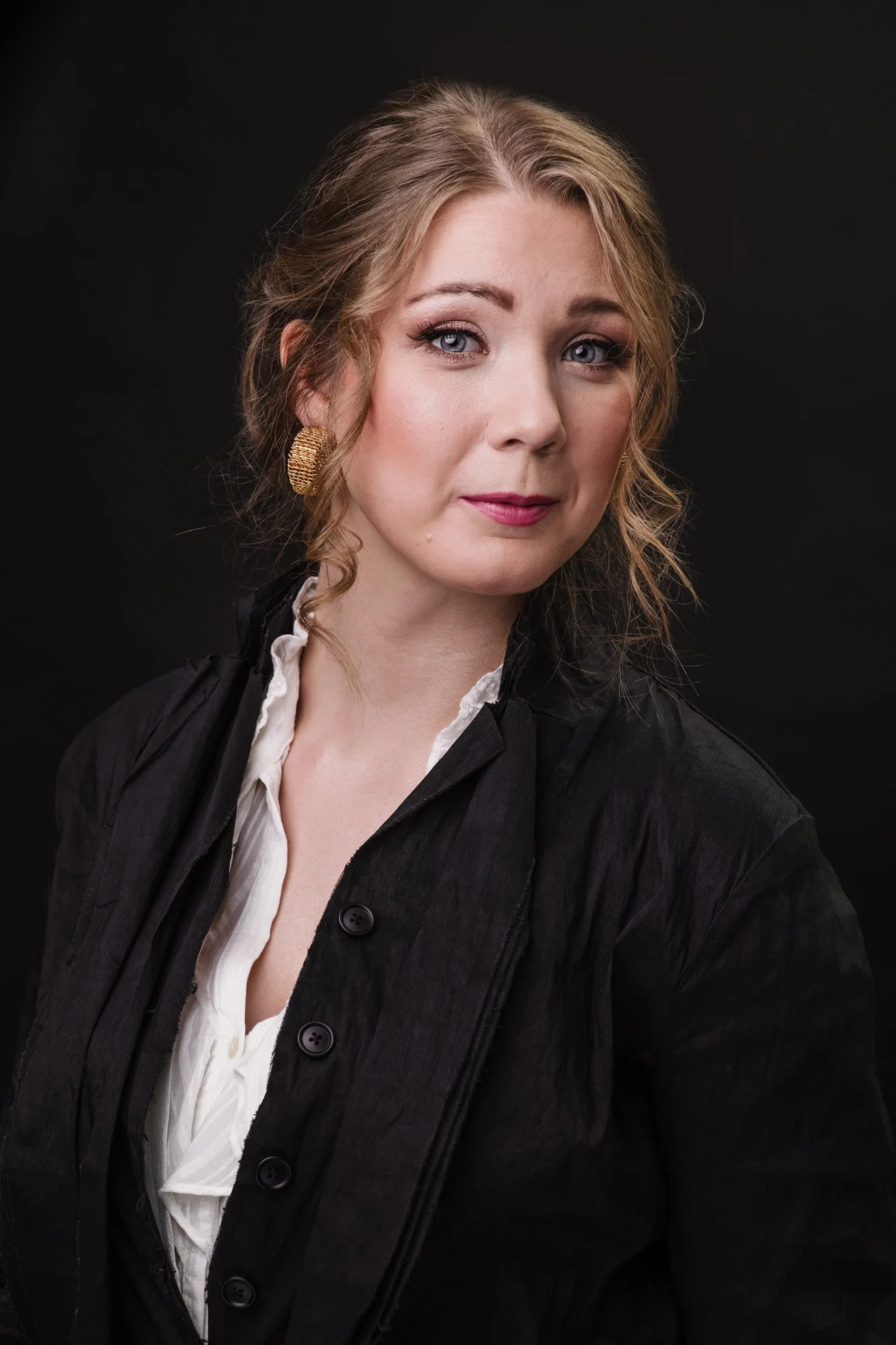Indrė Kučinskaitė (born in 1999) is a Lithuanian cornetto player and early music specialist. She completed her Master's studies (2023) and specialized Master's studies (2025) at the Schola Cantorum Basiliensis in Basel, Switzerland, where she studied cornetto with Frithjof Smith, and also completed her studies on a second instrument - the Renaissance traverso - with Johanna Bartz. Indrė was awarded the prestigious Lyra Foundation Switzerland scholarship, designed to support advanced music students and artistic activities. In 2025, she won the Walter and Corina Christen-Marchal Foundation and Schola Cantorum Basiliensis Prize for one of the best final recitals of the 2024-2025 academic year.
Her concert activities include Switzerland and many other countries - Lithuania, Poland, Germany, Austria, Italy, the Netherlands, Sweden, the Czech Republic, Croatia and Finland. Indrė has performed in prestigious halls and festivals, including the Kölner Philharmonie, Utrecht Early Music Festival, Residenzwoche München, Erasmus Klingt Festival, ReRenaissance concert series in Basel, Wiener Staatsoper, etc.
Indrė collaborates with renowned ensembles such as Balthasar Neumann Choir and Ensemble (Howard Arman), Ensemble I Gemelli (Emiliano Gonzalez Toro and Mathilde Etienne), Studio 31+ (Johannes Keller), European Hanseatic Ensemble (Manfred Cordes), Capricornus Ensemble Stuttgart (Henning Wiegräbe), Cappella Marciana (Marco Gemmani), Ensemble Responsorium (Tin Cugelj), ecco la musica (Heike Hümmer and Matthias Sprinz), La Florida Capella, Innsbrucker Hofmusik (Marian Polin), Dresdner Kammerchor (Hans-Christoph Rademann), Lautten Compagney (Wolfgang Katschner), Vox Luminis, Bach Vereniging (Lionel Meunier), and Concentus Musicus Wien (Stefan Gottfried). She recorded the CD Musik der Hansestädte Vol. 2 – Musik aus dem alten Danzig with the European Hanseatic Ensemble (Manfred Cordes).
With the ensemble RÝNSKÝ in 2024, she was a finalist in the Johann Heinrich Schmelzer Wettbewerb in Melk, Austria. She is a co-founder of the Basel-based ensemble Vox Præterita, which explores lesser-known Renaissance and early Baroque repertoire, combining repertoire exploration with lively and creative performance practice.


